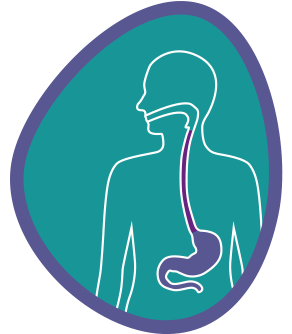Wellbeing Meetings
Our Wellbeing Meetings are held twice a year. Whatever stage of your illness - recently diagnosed or some years on, facing chemotherapy, radiotherapy, surgery or palliative care - we can help. We completely understand your worries and fears and can give support you need in order to achieve the best possible quality of life.
Group Support
Group Support meetings are held across Northern Ireland throughout the year. The aim is to help new patients, families and carers to cope with difficulties arising as a result of treatment, giving support and encouraging patients to achieve a good quality of life. Our support groups are made up of a mixture of current and former patients, their carers and close family members and friends. Our group members (both male and female) come from a wide range of backgrounds and occupations, and all have very different stories to tell. We all have one thing in common however, and that is we all aim to help and support each other.
One to One
We also offer patients the opportunity to speak directly to a former patient and gain reassurance that life can again be very good. From personal experience, we know that life after diagnosis can be challenging. Most patients find it helpful and encouraging to talk to someone who has experienced similar symptoms and has undergone the same course(s) of treatment. Our volunteers are on hand and willing to offer you support, encouragement and reassurance. Whilst we do not offer counselling or medical advice, we can offer general guidance and suggestions based on our own experiences. From questions to ask your GP, to tips on what to eat... plus a lot more.Our support groups are made up of a mixture of current and former patients, their carers and close family members and friends. Our group members (both male and female) come from a wide range of backgrounds and occupations, and all have very different stories to tell. We all have one thing in common however, and that is we all aim to help and support each other.
We can be reached at any time on any of the methods below

Early Diagnosis is Key #CatchItEarly
Oesophageal cancer like many other cancers does not discriminate between age or sex and knowing and recognising the signs and symptoms are crucial to early diagnosis. If you suffer from any of the following symptoms for longer than 3 weeks you should consult your doctor.- Persistent Indigestion
- Difficulty swallowing or food sticking
- Heartburn acid reflux
- Hiccupping that wont go away
- Unexplained weight loss.
Latest News
Access all of our latest news, press releases, and newsletters in one place! Stay informed of new treatments, research and events.
Hilary’s Story
Hilary Bell from Ballyclare was first diagnosed with oesophageal cancer at the age of 46. Over the past two years, Hilary has been on a emotional and physical rollercoaster, but...
Continue ReadingOGCancerNI Spring 2025 Newsletter
OGCancerNI are pleased to release our Spring 2025 Newsletter. Looking forward to seeing you at our up and coming events!
Continue ReadingThe Association of British Insurers – advice and guidance on obtaining travel insurance
As you may be aware, we have been involved in lots of discussions around cancer patients and their ‘Right to be Forgotten’ when it comes to accessing some financial services....
Continue Reading